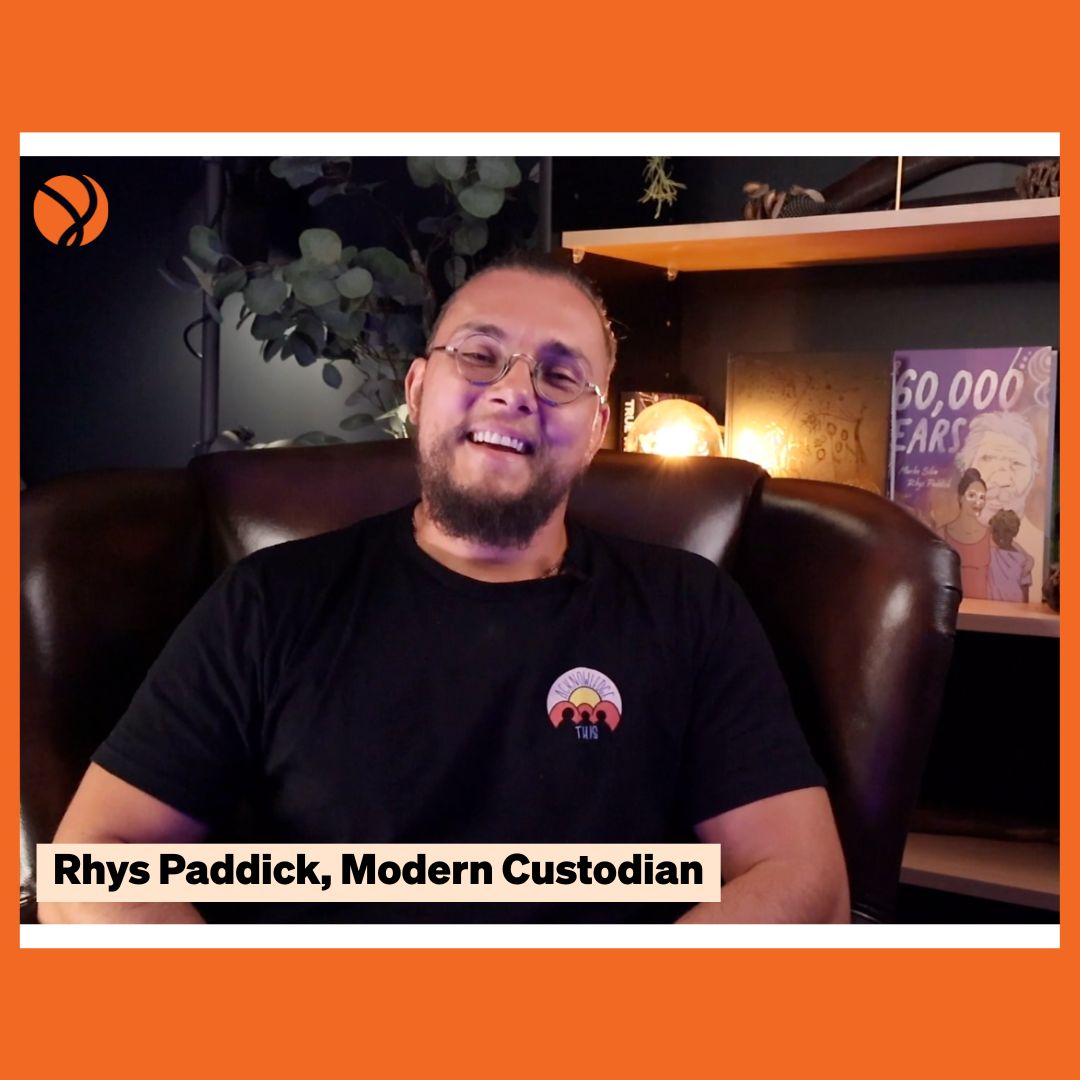Acknowledge This! Acknowledgement of Country Workshop
Created by Rhys Paddick and Emma Gibbens from Modern Custodian, this workshop is about the best use of an hour we can think of. Rhys dives deep into the questions you might have about the act of Acknowledging Country, such as:
- “What is an Acknowledgement of Country, beyond just a respectful thing to do?”
- “Why do we acknowledge elders?”
- “How do elders feel about being acknowledged at all of the events and forms and at the bottom of emails?”
- “When do we do an Acknowledgement?”
The session also explores the difference between a Welcome to Country and an Acknowledgement of Country, the origins of the modern Welcome to Country, and a brilliant analogy that helps reframe how you might think about what a Welcome to Country actually is. (You’ll love it!)
This workshop aligns with the deeper purpose behind these practices – the idea that both Acknowledging Country and Welcoming guests to Country can become meaningful actions if people connect with the principles that underpin them.
Rhys helps us do just that. And while we won’t give too much away (because we don’t want to take the joy out of learning directly from Modern Custodian), we will share what may be the crux of the session:
An Acknowledgement of Country is about words AND intention.
Understanding the ‘Why’
If you don’t have an adequate understanding of the “why” behind a Welcome to Country or an Acknowledgement of Country, then your intention in delivering one will likely reflect that lack of understanding – and most people are very good at recognising when it’s simply rote script-reading.
So before diving in, ask yourself:
Are you Acknowledging Country because you think you should – or because it has taken on meaning for you as you’ve come to understand its origins and significance for First Nations Peoples?
Rhys guides us through this learning process with warmth and clarity. He reminds us:
There’s no shame in being a novice, or in having delivered a scripted Acknowledgement in the past.
“On the journey toward reconciliation, we can all only start where we are.”
He also acknowledges the common fear of “getting it wrong” and challenges us to push past it by asking:
“How do we move from head to heart?”
And most importantly, he reiterates:
“Don’t let the idea of offence stop you from stepping into your genuine intentions.”
Yes, Rhys also walks us through the ‘how’. How to structure an Acknowledgement, and the deeper ‘why’ behind each part. He invites reflection on questions like:
“What is your connection to the concept of elders before the politics of the words you think you should or should not be saying?”
Haven’t seen it yet?
Give yourself the gift of learning through this heartfelt and transformative workshop. You’ll leave not only more informed, but more connected.
You will find the training in your membership dashboard once you’ve logged into the portal.
